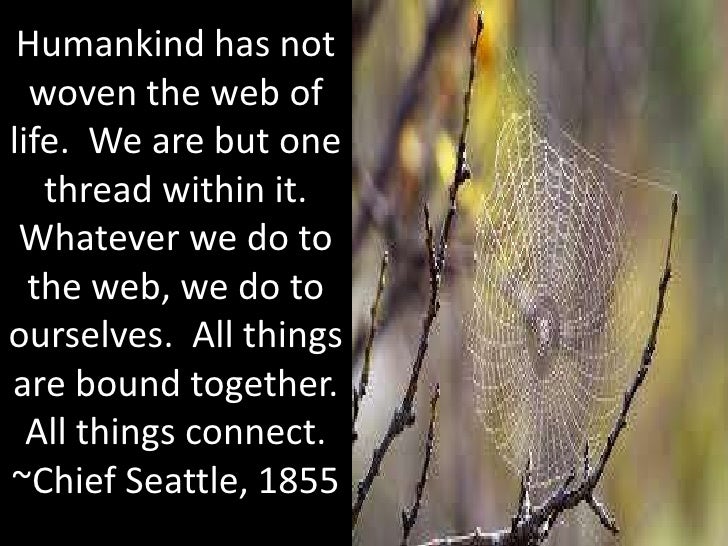
Wiki / Interdependenz
Inhaltsverzeichnis: (verbergen)
|
Der Begriff Interdependenz tauchte zum ersten Mal 1848 in dem Werk Das Kommunistische Manifest (Manifest der Kommunistischen Partei) von Karl Marx. Er wies darin auf die universelle gegenseitige Abhängigkeit der Nationen hin
Theorie des Marxismus
Einige der Förderer der schleichenden Volksverblödung durch absolutistische Denksysteme sind:
|
| See also: ► ⚡ Systemic dumbing-drugging down of modern Western society ► Timeline of long-term mass mind control administered by the parallel government |
Das Kleine-Welt-Phänomen besagt, dass Menschen durch überraschend kurze Kette intervernetzt sind: Jeder sozial
agierende Mensch auf dem Erdball ist mit jedem anderen über nur sechs Bekanntschaftsbeziehungen verbunden
und miteinander bekannt.
Zwischen jedem Menschen und einem beliebigen anderen Zeit-
genossen, den er treffen möchte, liegen nur sechs menschliche Zwischenträger.
Ab 1967 und in den 70er Jahren führten die US-amerikanischen Sozialpsychologen Dr. Stanley Milgram und Jeffrey Travers
von der Harvard University ein Experiment der Interverbunden-
heit durch. Eine Gruppe von Menschen aus einem Teil der Ver-
einigten Staaten von Amerika verschickte einen Brief an ausge-
wählte, ihnen persönlich unbekannte Personen in einem anderen
Teil der Nation. Die Absender wurden gebeten, die Briefe an Men-
schen zu versenden, von denen sie vermuteten, den Empfänger
zu kennen. Die Briefe, die tatsächlich ankamen, benötigten durch-
schnittlich nur fünf bis sechs Zwischenstationen (manche weniger und manche mehr).
In Milgrams erfolgreichstem Versuch wurden insgesamt 217 Briefe versendet. Es kamen allerdings nur 64 Briefe (29 Prozent) beim ausgewählten Empfänger an. Somit waren 29 Prozent aller Teilnehmer im Schnitt über sechs Ecken mit dem Empfänger verbunden. 71 Prozent der Teilnehmer hatten keine funktionierende Interverbundenheit.
Eine Studie amerikanischer Soziologen3 an der Columbia University in New York wertete den E-Mail-Verkehr von 61.168 Freiwilligen aus 166 Ländern aus. Auch bezogen auf das weltumspannende Datennetz bestätigten Duncan Watts und
seine Kollegen die bereits in den sechziger Jahren aufgestellte "Small-World-Hypothese".
2008 haben die Microsoft-Wissenschaftler Jure Leskovec und Eric Horvitz die Kleine-Welt-These bezüglich eines Netz-
werks von Instant-Messenger-Nutzern (180 Millionen Knoten mit 9,1 Milliarden Kanten) empirisch bestätigt. arxiv.org
|
|
| Quelle: ► Artikel Über 6,6 Ecken. Das Jeder-kennt-jeden-Gesetz, Das Jeder-kennt-jeden-Gesetz, präsentiert von dem deutschen Nachrichtenmagazin Spiegel Online, Holger Dambeck, 2. August 2008 |
| Referenz: de.Wikipedia-Eintrag ► Dunbar-Zahl [150 Gruppenmitglieder = natürliche maximale Gruppengröße] Der britische Anthropologe und Evolutionspsychologe Dr. Robin Dunbar (*1947) nennt als theoretische kognitive Grenze die Gruppengöße von 150 Menschen, mit denen ein Individuum infolge der Größe und Funktion seines Neocortex stabile soziale Beziehungen unterhalten kann. |
| Siehe auch: ► Liste der psychologischen Effekte, Phänomene und Syndrome |
| See also: ► Dunbar's number 150 |
Schlussfolgerungen
|
Literaturzitate
Gedichte
Personal avowals
Recommendations
Appeals
Conclusions
Future prospects
Insights
Interrelated structure of reality ❄ inescapable network of mutuality
Victor Mansfield, Synchronicity, Science and Soul-Making. Understanding Jungian Synchronicity Through Physics, Buddhism, and Philosphy, S. 97, Open Court, 2001

Christakis and Fowler published the results of their long-term "Happiness study" of 20 years done with 4739 individuals in the British journal BMJ (formerly the British Medical Journal), December 2008. Humans are affected by their
friends' friends' friends at three degrees of separation.
|
Literary quotes
| Source: ► John Donne (1572-1631) English lawyer, priest, satirist, metaphysical poet, poem Meditation XVII, famous line No man is an island, 1623 |
| See also: ► Poems |
Links zum Thema Interdepenz / Interdependence and mutualityLiteratur
Literature (engl.)
Externe Weblinks
External web links (engl.)
Audio- und Videolinks
Themen: Gravitationskraft, 12-Dimensionen-Theorie von Burkhard Heim (1925-2001) deutscher theoretischer Physiker, Entwickler der Einheitlichen Feldtheorie ("Hyperraum", "Weltformel")
Audio and video links (engl.)
Surprising power of social networks and how they shape human lives:
Empathy and mirror neurons
Paradigmatic shift from the left-brained object-based Western perspective to the right-brained Native interdependent relational philosophy practicing justice as a healing experience based on a reversed hierarchy
Linkless media offerings
Evidence shows that social networks propagate happiness in a contagious fashion 7-9% more powerfully than unhappiness. Jonathan Haidt, Ph.D. (*1963) US American professor of social-cultural-moral psychology and ethical leadership is researching the spread of loneliness, empathy, centralized "smart center" networks ⇔ smart edges, group selection, the work of happiness and elevation, and ways to construct networks of uplift.
Music links (engl.) – Interdependence
"We Are All Connected" is a sampling of Carl Sagan's Cosmos, presented by the US American basic cable and satellite television station The History Channel, Universe series, Richard Feynman's 1983 interviews, Neil deGrasse Tyson's cosmic sermon, and Bill Nye's "Eyes of Nye" series, plus added visuals from "The Elegant Universe" (NOVA), Stephen Hawking's "Universe, Cosmos, the Powers" of 10, and more.
|
Englisch Wiki
Hawkins
-
1 Article Who was Karl Marx?, presented by the blogspot antinewworldorder, 1. October 2007 ⇑
2 Article The Communist Manifesto After 150 Years, presented by the monthly independent socialist magazine Monthy Review, Ellen Meiksins Wood, 1998 / Article Karl Marx, Prussian government agent, presented by the publication Postflaviana, Wolfgang Waldner, 22. January 2015 ⇑
3 Peter Sheridan Dodds, Roby Muhamad und Duncan J. Watts, An Experimental Study of Search in Global Social Networks, veröffentlicht von dem US-amerikanischen Wissenschaftsmagazin Science, Band 301, S. 827-28, Ausgabe 8. August 2003 ⇑